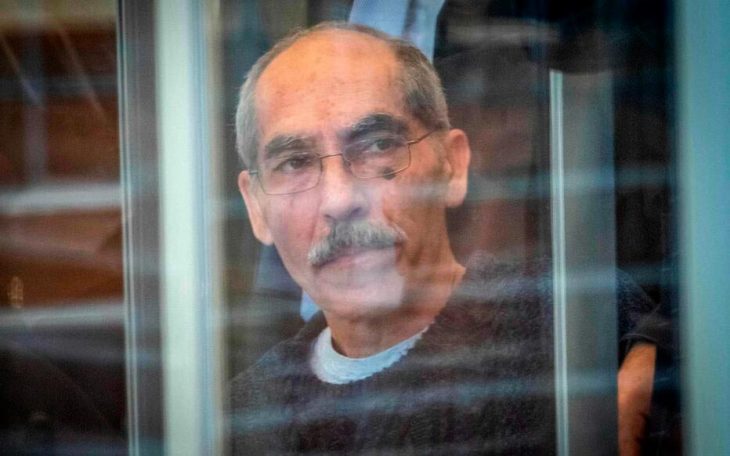A German court on Thursday sentenced a former Syrian colonel to life in jail for crimes against humanity in a landmark first global trial over state-sponsored torture in Syria.
Anwar Raslan, 58, was found guilty of overseeing the murder of 27 people at the Al-Khatib detention centre in Damascus, also known as "Branch 251", in 2011 and 2012.
He sought refuge in Germany after deserting the Syrian regime in 2012.
Prosecutors had accused him of overseeing the murder of 58 people and the torture of 4,000 others at the detention centre, but not all of the deaths could be proven.
The defendant, wearing a green winter jacket and listening to the verdict through headphones, remained emotionless as his sentence was read out in court.
More than 80 witnesses, including 12 regime deserters and many Syrian men and women now living across Europe, took the stand to testify during the trial, with around a dozen also attending the verdict.
The presiding judge said they deserved "full respect".
Syrian activists gathered outside the court on Thursday holding banners and posters with slogans such as "where are they?" referring to their relatives who have disappeared in Syrian detention centres.
Raslan was put on trial in April 2020 along with another lower-ranking defendant, Eyad al-Gharib, who was accused of helping to arrest protesters and deliver them to the detention centre.
Gharib was sentenced to four and a half years in prison last year for complicity in crimes against humanity, in the first verdict worldwide over torture by Syrian President Bashar al-Assad's government.
'Systematic attack'
The court in the western German city of Koblenz at that time noted a "widespread and systematic attack against the civilian population" since Syria's civil war began with a brutal crackdown on protests in March 2011.
The case against the two men was brought using the legal principle of universal jurisdiction, which allows offences to be prosecuted even if they were committed in a different country.
Other such cases have also sprung up in Germany, France and Sweden, as Syrians who have sought refuge in Europe turn to the only legal means currently available to them.
In another prominent case in Germany, the trial of a former Syrian doctor charged with crimes against humanity is due to open next week.
The chief prosecutor in the Raslan trial, who has noted Germany's historical responsibility to judge such crimes, quoted a Holocaust survivor in his closing speech.
Raslan worked for 18 years in the Syrian secret services, where he rose through the ranks to become head of the domestic intelligence "investigation" service, according to a German investigator who testified at the opening of the trial.
Prosecutors say he oversaw rape and sexual abuse, "electric shocks", beatings with "fists, wires and whips" and "sleep deprivation" at the prison.
Flogging, electric shocks
Witnesses reported flogging, electric shocks, cigarette burns and blows to the genitals. Some say they were hung by the wrists, with only the tips of their feet still touching the ground.
One man testified about mass graves that he was responsible for cataloguing.
Some witnesses have hidden their faces or appeared in disguise, fearing consequences for their surviving relatives in Syria, while other victims have been too afraid to come forward at all.
"I hope we were able to give a voice to those who are deprived of it" in Syria, Wassim Mukdad, a former detainee who testified in the trial, told AFP ahead of the verdict.
"I want justice to be done," he said.
Images of dead Syrians smuggled out of the country by "Caesar", a defector who had worked as a photographer for the Syrian military police, have also been used as evidence in the trial.
Raslan remained silent throughout the trial but said in a statement through his lawyers that he had "neither beaten nor tortured" prisoners and had "never acted inhumanely".
They said he "did not and would not condone" the abuses committed by the Syrian regime and felt "regret and compassion" for all the victims.
Raslan has never attempted to hide his past and told police about his time in Syria in February 2015 when he sought police protection in Berlin.
According to the UK-based Syrian Observatory for Human Rights monitoring group, at least 60,000 people have been killed under torture or as a result of the terrible conditions in Assad's detention centres.
"This trial is very important for Syrians because it examines very serious crimes that continue to be committed today," said Syrian lawyer Joumana Seif.




